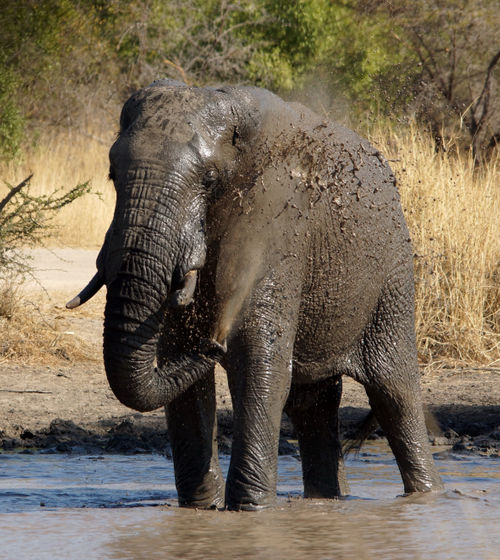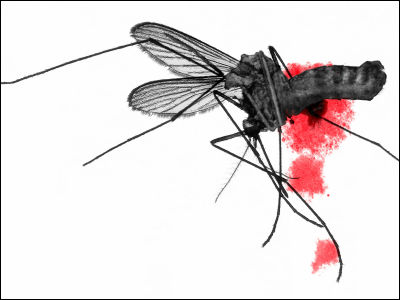Is the truth of the mysterious mass death of elephants unraveled, or what is the identity of what killed 356 elephants?

On September 21, 2020, the Government of the Republic of Botswana, located in southern Africa, announced the results of a survey on the mass death of elephants that occurred around May of the same year. Officials have determined that the elephants' deaths were due to natural phenomena rather than human acts such as poaching, but some are skeptical.
Botswana says cyanobacteria caused elephant deaths in the hundreds --CNN
Botswana says toxins in water killed hundreds of elephants | Reuters
https://www.reuters.com/article/us-botswana-elephants/botswana-says-cyanobacteria-cause-of-mysterious-elephant-deaths-idUKKCN26C0WA
356 Elephants Dropped Dead. Did This Bacteria Poison Them? --The New York Times
https://www.nytimes.com/2020/09/23/science/dead-elephants-botswana.html
In July 2020, the Botswana government announced that elephants had been found suspiciously dead from early May to late June of the same year. The cause of the death of a total of 356 elephants was initially unknown, but it was pointed out that 'about 70% of the elephant carcasses were found near the drinking fountain.'
The mysterious 'mass death of elephants' continues, and more than 350 confirmed dead bodies --GIGAZINE

Cyril Taolo, Deputy Director of the Botswana Wildlife and National Park Service, said at a meeting on September 21 that elephant carcasses showed no evidence of gunshot wounds or fangs being removed and taken away, and elephants poached. Denied the hypothesis that he died in. He said the death of an elephant was not human-related.
In addition, Mumadi Ruben, the chief veterinarian of the Wildlife and National Parks Bureau, who attended the meeting, said that neurotoxins were detected in the blood of dead elephants and that the waterside was dry around the end of June. Since the suspicious death of elephants no longer occurs, he reported that 'the cause of death of elephants is water pollution caused by a type of cyanobacteria that propagated near the water.' Cyanobacteria are unicellular organisms that are widely distributed in the sea and freshwater on land and perform photosynthesis.
Scientists believe that climate change has triggered the production of toxins that are commonplace in nature and kill large numbers of giant elephants. According to a survey by an intergovernmental panel on climate change, temperatures in South Africa are rising at twice the global average.
Professor Patricia Glibert of the Center for Environmental Sciences at the University of Maryland told Reuters that 'certain conditions allow certain cyanobacteria to grow. As a result, harmful algae blooms have begun to grow all over the world, 'suggesting that rising temperatures and water temperatures are inducing the growth of harmful bacteria.
However, there are still unclear points in the view that cyanobacteria are the cause of death. 'It's still unclear why only elephants were affected,' Ruben said at a press conference. Keith Lindsay, a conservation biologist who specializes in elephants, told CNN, an American television station, 'Why was only an elephant damaged if something was on the water's edge?' ? '.
'The resistance to toxins varies from species to animal, so it's possible that elephants were particularly sensitive to certain neurotoxins,' said Roy Bengis of the University of Pretoria, South Africa, as to why only elephants died. Also, since elephants drink as much as 40 gallons (about 150 liters) of water a day, they ingest more toxins than small animals, and elephants roll around in the mud and smear mud on their bodies. There is also a habit of doing so, so there is a possibility that neurotoxins may have been absorbed through the skin. '

On the other hand, Lindsay said, 'One of the habits of elephants that other animals do not have is the behavior of going to the farmland to look for crops. If a farmer poisons, elephants of all ages will poison it. It will return to the water as it is ingested. In any case, the Botswana government was uncooperative with the research community, so the opportunity to know what actually happened to the elephant was lost. ' He argued that the elephant may have died by human hands.
In addition, according to the New York Times, a daily newspaper in the United States, the Botswana authorities have hidden the research institute that issued the results of this survey, and have not released detailed information such as the specific type of cyanobacteria, so some It is said that there are also criticisms from.
Although smaller than Botswana, suspicious deaths of 25 elephants have also been reported in neighboring Zimbabwe. Chris Fogin of the Victoria Falls Wildlife Trust , a wildlife conservation group that investigated elephants in Zimbabwe, said, 'We also examined the possibility that cyanobacteria are the cause of death, but at least in Zimbabwe, cyanobacteria are the cause of death. There was no evidence. '
According to Mr. Fogin, the Zimbabwean government has sent locally collected samples to the United Kingdom and is in the process of requesting investigations from two other countries.
Related Posts:
in Creature, Posted by log1l_ks






